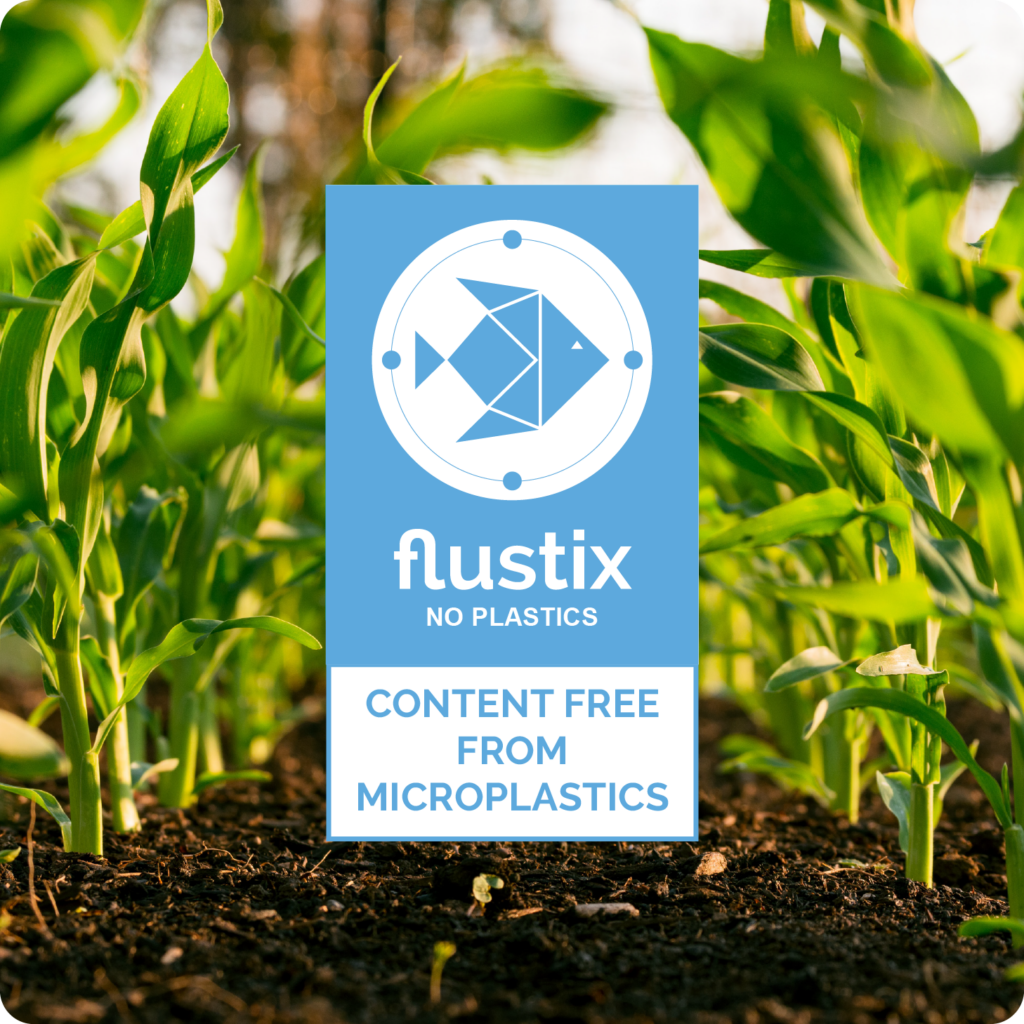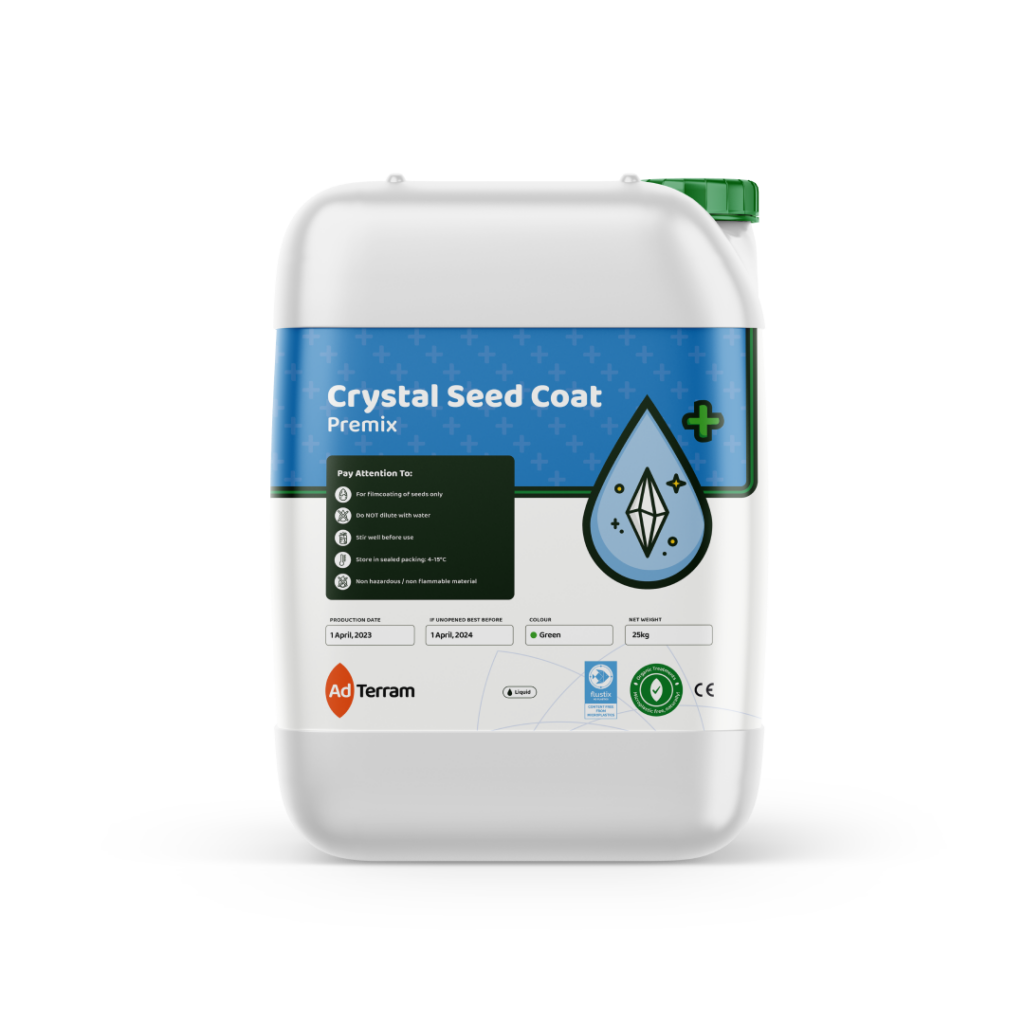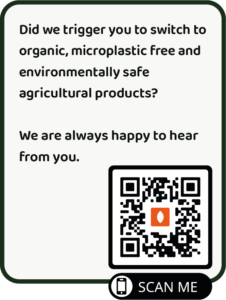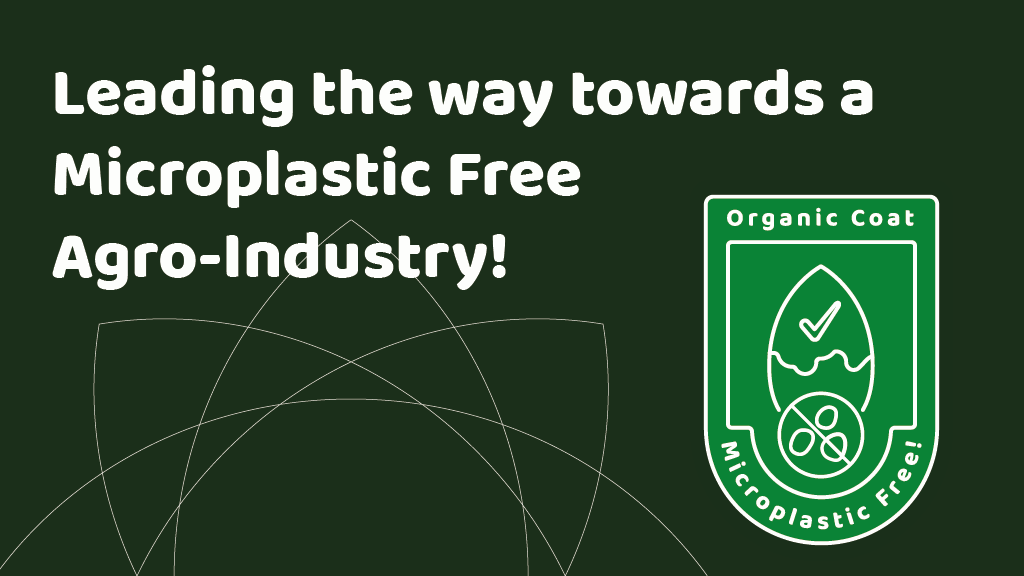Why wait another 5 years, be future proof now with the products of

Microplastics are solid plastic particles (smaller than 5mm in any dimensions) composed of mixtures of polymers and functional additives. They may also contain residual impurities. Microplastics can be unintentionally formed when larger pieces of plastic, like car tyres or synthetic textiles, wear and tear. But they are also deliberately manufactured and added to products for specific purposes, such as exfoliating beads in facial or body scrubs and Agricultural products”
While the restriction on the use of intentionally added microplastics is approaching, a lot of companies are still struggling to have microplastic free solutions in place for their customers. By staying ahead of the changing regulations Ad Terram has managed to provide our customers official certified microplastic free products already for a long time… From filmcoating liquids to encrusting/pelleting powder and binders and Biostimulants. So what is the Microplastic Restriction? Why are Microplastics such a threat for the agricultural sector? And what did we do to overcome these challenges?
The Microplastic Restriction
On the 27th of April the Member States of the EU countries voted positive on the proposal to restrict microplastics that are intentionally added to products. After the scrutiny of 3 months by Council and European Parliament they will share when the restriction will be adopted. It is to be expected that it will go into force by the end of 2023.
Why could Mircoplastics become a threat for your company?
When we started we could see a huge difference in our laboratories and in the field between naturally treated seeds and seeds treated with polymers / bio-based polymers. The germination of naturally treated seeds is much quicker, showed fewer signs of stress and had an enhanced vigour. Many studies have shown us that microplastic particles can even enter into plant cells and by doing so reducing the growth of root length and biomass ratio.2 Furthermore, microplastics can create a physical blockage of the pores in the seed capsule resulting in damaged root and shoot growth. Also due to the accumulation of the microplastics close to the root hairs it inhibits the root hairs its imbibition of water and nutrients from the soil.3 But the main issue lies with the pollution of the environment and possibly human health. Where tooth paste and shampoo can be filtered in the sewer system, agricultural products are directly sown or sprayed on the fields without any filter. These microplastics end up in ground water, fresh drinking water and even in living organisms e.g. fish and plankton.
Natural products instead of “Biodegradable or Bio-based” polymers
In the industry you see a lot of biodegradable polymers or bio-based polymers which are used in seed treatments or other agricultural products. In the proposed restriction of ECHA microplastics need to be biodegradable to hydrocarbon level in a maximum of 48 months. To prevent over regulating ECHA refers to the new fertilizer law (EU) 2019/1009 where the biodegradability of products is elaborated. The problem with these biodegradable and bio-based polymers is that the biodegradability of these products is much longer than 48 months. Sometimes well over 200 years! When switching to products like this you should be aware of the fact that 5 years after the restriction is adopted, you are not allowed to use them anymore.
Ad Terram only uses naturally derived products such as natural acids, a variety of natural polysaccharides, flavonoids and naturally extracted polymethoxylated flavones. We don’t use any polymers and/or biopolymers in our products. By using only naturally derived products we can assure our customers that we meet the biodegradability limits of the fertilizer law. Unfortunately there is no official test available yet on biodegradability.
Officially Certified Microplastic Free Solutions

From the start Ad Terram focused on research and development of organic and microplastic free agricultural treatments. The public opinion about chemical and synthesized products was changing rapidly and more and more chemical compounds were (and still are) getting banned due of the danger to human health and the environment.
Because of these changes we decided to only focus on developing environmentally safe products that could help the industry getting ready to become future proof, without compromising on price and quality.
Claiming as a company your products are microplastic free without any independent proof is easy. We always support our product claims with official certifications, this is not easy but in our point of view necessary to proof your products really are microplastic free and not just a statement. Therefore we work together with Flustix, an independent trustmark for labelling plastic-free cosmetics, detergents, cleaning agents and many more products. The flustix PLASTIC FREE label is the first and only registered European sustainability certificate concerning plastic-use in products. They certify products, especially liquid product contents, that are free of microplastics according to the ECHA definition.
In June 2022 all our products got officially certified Microplastic Free by Flustix. We are the first and still the only agricultural treatment company who got certified and are providing certified microplastic free products to the market.
CE marked Biostimulants on seeds
Last December we got the wonderful news that Kiwa VERIN granted us the CE marking for all our Biostimulants both microbial and non-microbial. For the CE mark you have to proof the claims you make for your Biostimulants by providing field results and scientific papers. You undergo a strict quality and safety assessment at your location where everything from production to labelling is checked according to the corresponding regulation, in our case the FPR (EU) 2019/1009.

Our Premix filmcoating, which includes our Biostimulant Optimum Seed, is already used for years by many seed companies, and improves both the vigour of the plants and the root system which creates a higher chance of reaching water and micronutrients and therefore it will improve the plants exterior and results in more uniform and higher yields.
We selected a special Arbuscular Mycorrhizae Fungi strain for soil conditioning and for plant enhancement in which the performance of the symbiosis enhances plant facilitation, particularly increasing the uptake of micro-nutrients and initiates plants defense against harmful pathogens and insects. We are able to fixate microbes on seeds without changing the status of the dormant microbe which gives you a long shelf life. But also the survival rate of the microbes are secured. Therefore we can apply precise amount of spore so you don’t have to apply an excessive amount of spores in order to succeed.
Organic products
From our filmcoating, to our encrusting/pelleting powders and binders and our Biostimulantsall our products are certified organic by multiple institutes worldwide. Therefore they can also be used in organic farming.
So in the end, what is our Secret?
Well, we don’t have one. We simply want to be as transparent as we can be to our customers. By providing the industry officially certified products by the most important institutes we ensure you that, with using our products, you are future proof and you contribute to an environmentally safe, microplastic free and organic Agro-industry.

